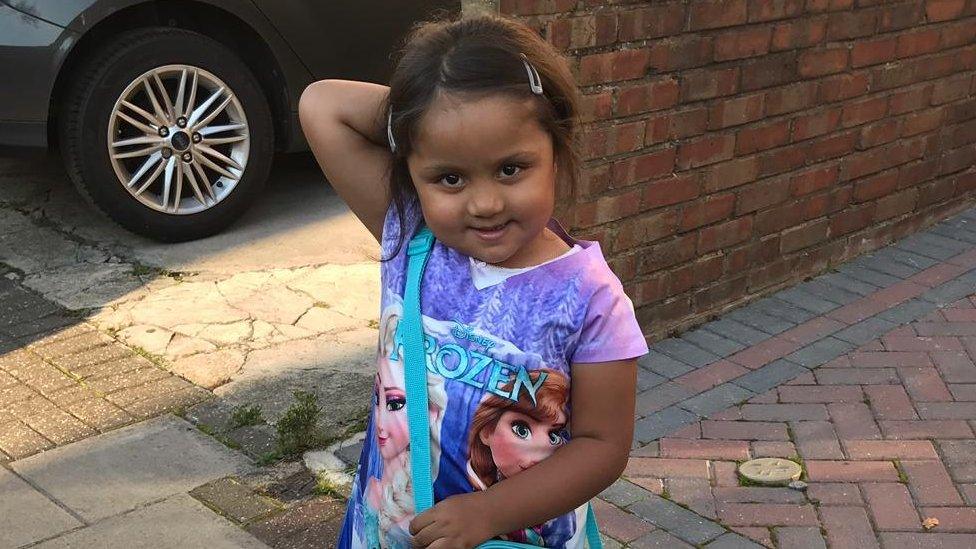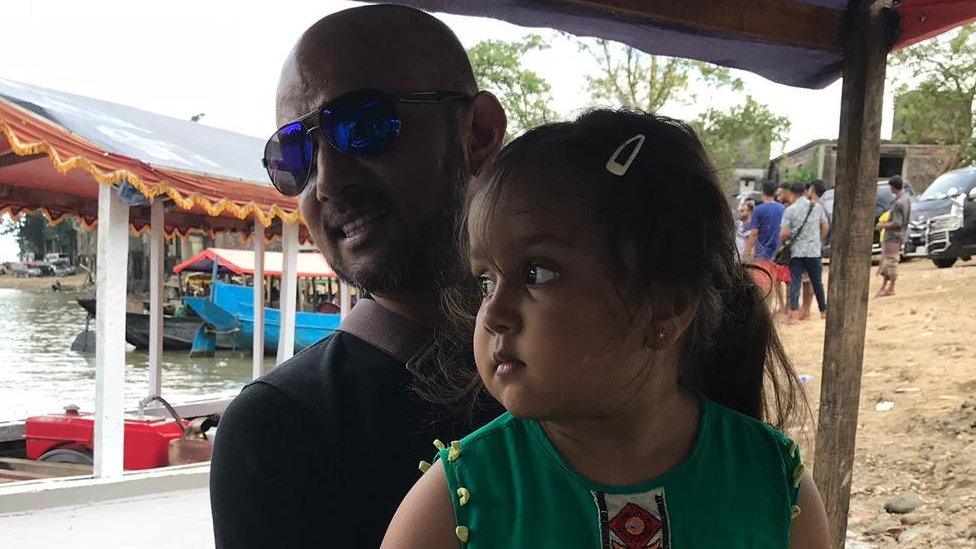Tafida Raqeeb: Parents bid to get daughter treated in Italy
- Published

Tafida Raqeeb's mother said her daughter was "completely healthy" before her sudden brain injury
The parents of a five-year-old girl in a coma have begun a legal challenge after doctors said it was in her best interests to be allowed to die.
Royal London Hospital doctors have said there is no hope Tafida Raqeeb will recover from the traumatic brain injury she suffered in February.
But clinicians at a hospital in Genoa, Italy, have offered Tafida treatment.
On Tuesday her parents asked a High Court judge to force the Royal London to let her travel abroad.
A spokesman for Barts Health NHS Trust, which runs the hospital, said that its clinicians and independent medical experts had found "further invasive medical treatment is futile".

Tafida's mother said her daughter was opening her eyes and moving her limbs
Tafida, from Newham, east London, is suffering from a rare condition which causes a tangle of blood vessels with abnormal connections between the arteries and veins.
Her mother, Shelina Begum claimed that before she suffered the trauma on 9 February Tafida was "completely healthy".
"It is heartbreaking to see her like this and we just can't give up on her if there is any chance she could survive," she added.
Tafida was examined by two Italian clinicians via video link on Friday, according to the Local Democracy Reporting Service.
They confirmed they would be willing to care for Tafida and in Italy she would not satisfy the conditions of brain death and would not be subject to withdrawal from life support.

Tafida's parents took the hospital trust to the High Court on Tuesday
But after the consultation doctors from Royal London "remained adamant" they would not allow the patient to leave, according to legal documents.
A trust spokesman said: "This is a very sad case, for which we are in close contact with the family to offer support.
"Our expert clinicians caring for the child have determined, in discussion with additional independent medical experts elsewhere in London, that further invasive medical treatment is futile.
"As such we are engaging with the family to ensure we uphold the child's best interests, recommending withdrawal of life-sustaining treatment and instigating palliative care."